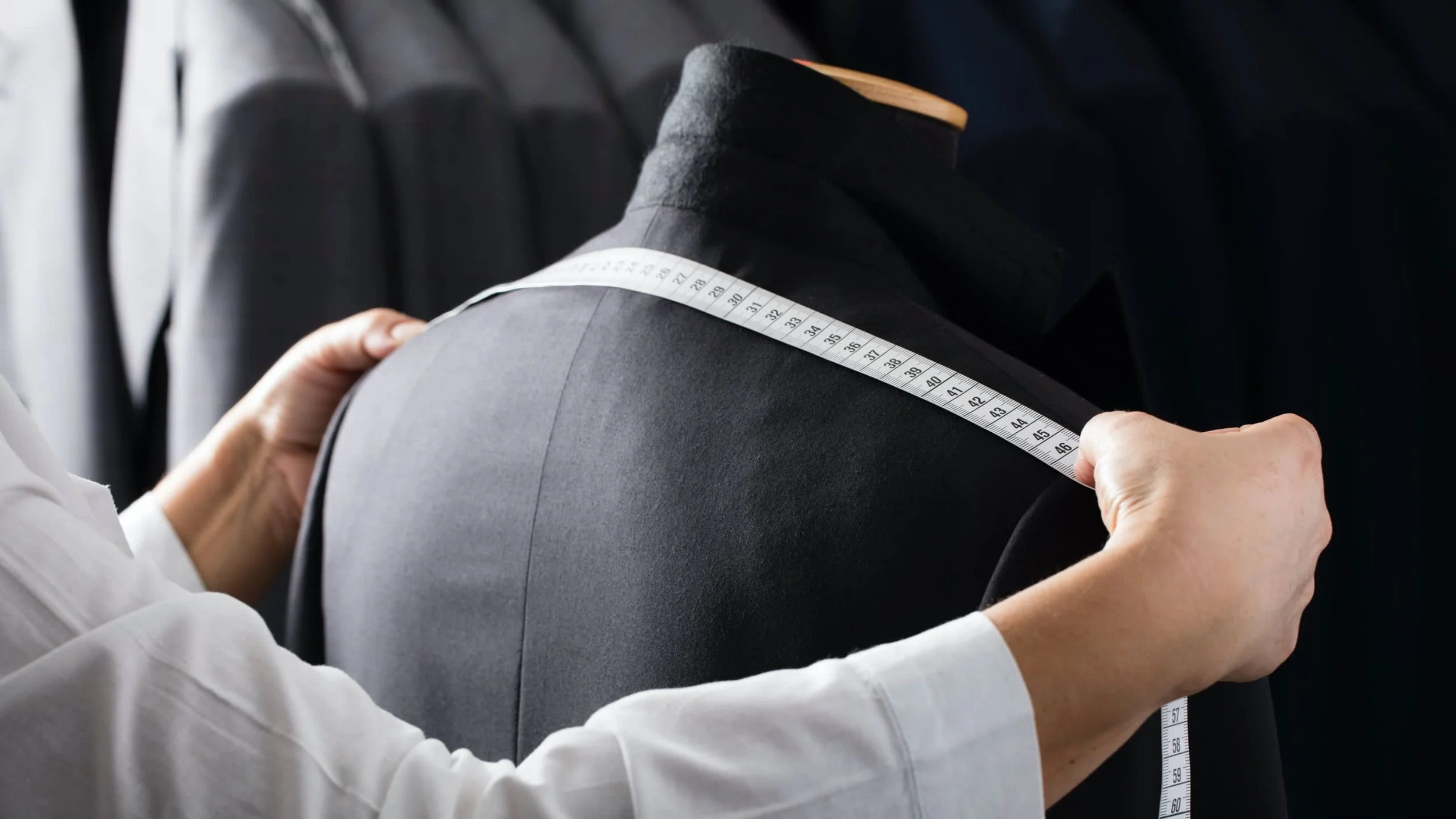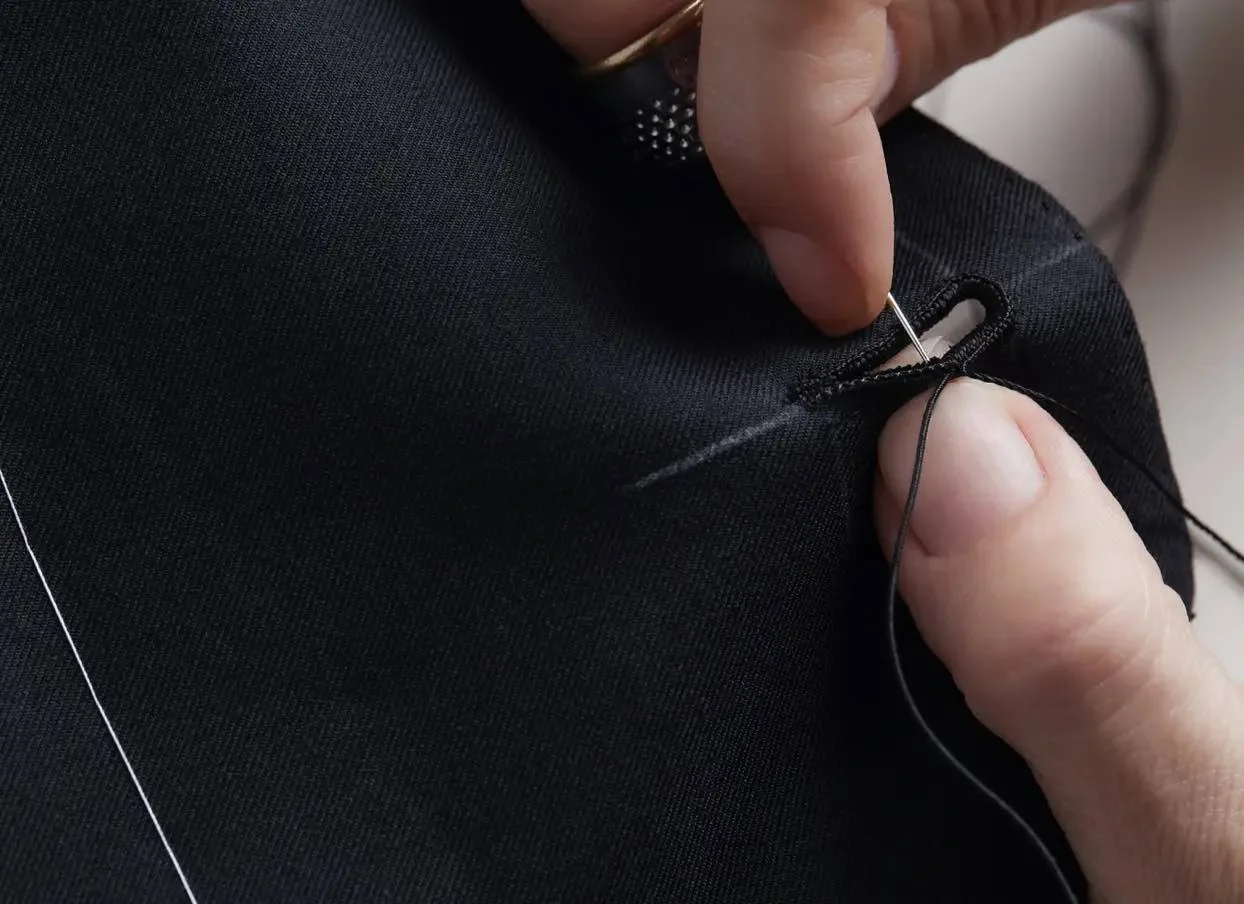THE ESSENTIAL GUIDE TO BUSINESS SHIRT FABRICS
Business Dress Shirt Fabrics
Even in today’s increasingly relaxed workplaces, business shirts remain a cornerstone of professional style, requiring a crisp, sharp appearance without excessive sheen. These shirts, typically in muted tones of white, blue, or subtle pink with discreet patterns, must also be durable enough for frequent wear. This guide, part of our comprehensive series on shirt fabrics, outlines the best choices for business shirts, covering weaves, fineness, colors, and treatments to help you build a versatile and polished wardrobe.
-
The weave of a shirt determines its texture, formality, and practicality. Here’s how to choose the right one for professional settings:
Poplin: The go-to for business shirts, poplin offers a smooth, crisp finish that looks sharp and professional. Lightweight variations like zephyr are breathable, making them ideal for warm commutes or summer offices.
Twill: Slightly heavier than poplin, twill resists wrinkles better, making it a practical choice for those seeking low maintenance. Its subtle sheen adds a touch of sophistication while remaining formal.
Oxford and Pinpoint: Popular in the US, oxfords have a textured weave that leans less formal. For business settings, choose a fine, smooth oxford or pinpoint, which balances durability with a smarter look.
Avoid Textured Fabrics: Fabrics like linen or brushed cotton, with their pronounced texture, are too casual for professional environments.
For most business needs, poplin is the versatile default, while twill is a strong alternative if creasing is a concern.
-
Thread count and yarn construction impact a shirt’s feel and longevity. Most quality business shirts use two-ply yarns (e.g., 2/100), ensuring strength and smoothness. Here’s what to consider:
Standard Fineness (2/80 to 2/100): A 2/100 shirt is the gold standard for business wear—smooth, durable, and resistant to creasing. It’s a reliable choice for frequent use and long-term investment.
Finer Fabrics (2/120 to 2/140): These feel silkier but wrinkle more easily, suiting those who prioritize softness over practicality.
Ultra-Fine Fabrics (140+): While luxurious, these are delicate and crease quickly, making them less ideal for daily office wear.
For a workhorse business shirt, opt for a 2/100 poplin or twill. In hotter climates, a 2/80 offers better drape and breathability, while cotton-linen blends provide comfort for summer.
-
Business shirts should remain understated to maintain a polished look:
Colors: White and light blue are timeless and universally accepted. Soft pink adds subtle flair but is more common in the UK than the US. Avoid cream or off-white, as they can appear outdated or discolored.
Patterns: Plain fabrics and hairline stripes are discreet and versatile, blending seamlessly in most offices. Bolder patterns like butcher’s stripes or small gingham checks may work in less formal settings but use them sparingly. Checks are generally more casual than stripes.
Cultural differences matter—British offices often embrace bolder shirts (e.g., pink or striped) due to historical traditions tied to regimental ties, while US workplaces lean toward conservative whites and blues.
-
For professionals with demanding schedules, wrinkle-resistant treatments can be a game-changer. High-quality treatments, like those coating cotton fibers to repel water during washing (e.g., Thomas Mason’s Journey range), keep shirts sleek. Twills with these treatments may require no ironing, while poplins need only a quick press. Unlike cotton-polyester blends, which can feel stiff and retain odors, quality treatments maintain breathability. Note that treatments may fade after 40+ washes but remain effective for extended use.
Practical Tips for Business Shirts
Test in Natural Light: Colors like blue can vary under artificial lighting. View swatches in daylight to ensure they complement your suits.
Prioritize Durability: Choose 2/100 fabrics for frequent wear, especially if commuting or traveling. Avoid ultra-fine fabrics for daily use.
Consider Your Climate: For hot climates, opt for lightweight zephyr or cotton-linen blends. In colder settings, twills add subtle warmth without sacrificing formality.
Collar Structure: For a polished look, ensure collars have a firm yet soft structure. Jermyn Street-style collars with thick, floating interlinings offer a plump, professional appearance compared to thinner, fused options.
-
To create a cohesive professional look:
Worsted Suits: Pair with poplin or twill for a sharp, formal finish.
Tropical/Fresco Suits: Choose cotton-linen or zephyr for breathability and texture that complements lightweight wools.
Flannel/Tweed Jackets: Opt for pinpoint or fine oxford to match the heavier texture, though these are less formal.
Elevate Your Wardrobe with Dorsia
Whether you’re seeking a quick, stylish Ready-to-Wear (RTW) shirt, a custom-fit Made-to-Measure (MTM) option, or the ultimate bespoke experience, Dorsia’s shirting collection delivers premium quality tailored to your needs. Start with a 2/100 poplin in white or light blue for a versatile business staple, or explore twill and pinpoint for added practicality.











